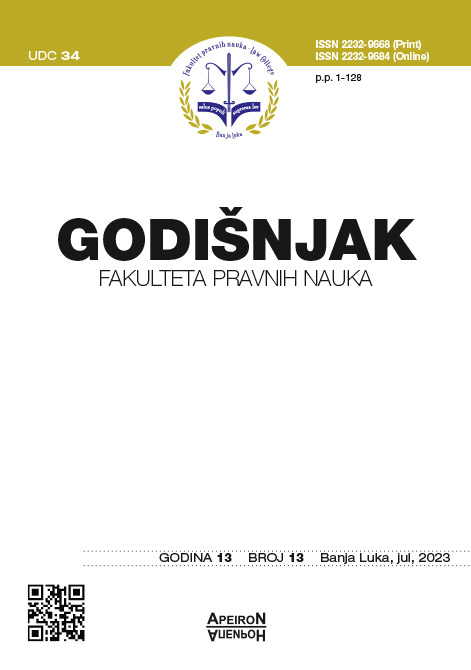Reform of Criminal Procedure Legislation in Bosnia and Herzegovina - Expectations, Reality and Perspectives
DOI:
https://doi.org/10.7251/GFP2313079KKeywords:
criminal procedure, criminal offense, efficiency, Bosnia and HerzegovinaAbstract
In this paper, the attention is focused on the efficiency of the criminal procedure, with a special focus on the efficiency of the criminal process entities in terms of elucidating and solving a specific criminal matter. In connection with the above, the authors recognized and identified the key procedural problems related to the timely, efficient and legal detection and proof of the criminal act and guilt. Given that a significant period of time has passed since the last general reform of the criminal procedure legislation, sufficient for a critical analysis, a critical review of all phases of the criminal procedure was carried out with the intention of actualizing and problematizing certain legal solutions of a procedural nature (detective activity, investigation concept, standards evidence, evidentiary role of the prosecutor, drawing up/filing of the indictment, complexity of discovery and proof, etc.) on which the efficient and legal conduct and finalization of criminal proceedings directly depend. Also, modern forms of criminality, especially specific forms of organized crime, demand from the legislator the adequacy of the legal norm in terms of achieving a legitimate legal goal related to the effective and energetic fight against crime as a complex social phenomenon and achieving adequate results of criminal justice.
